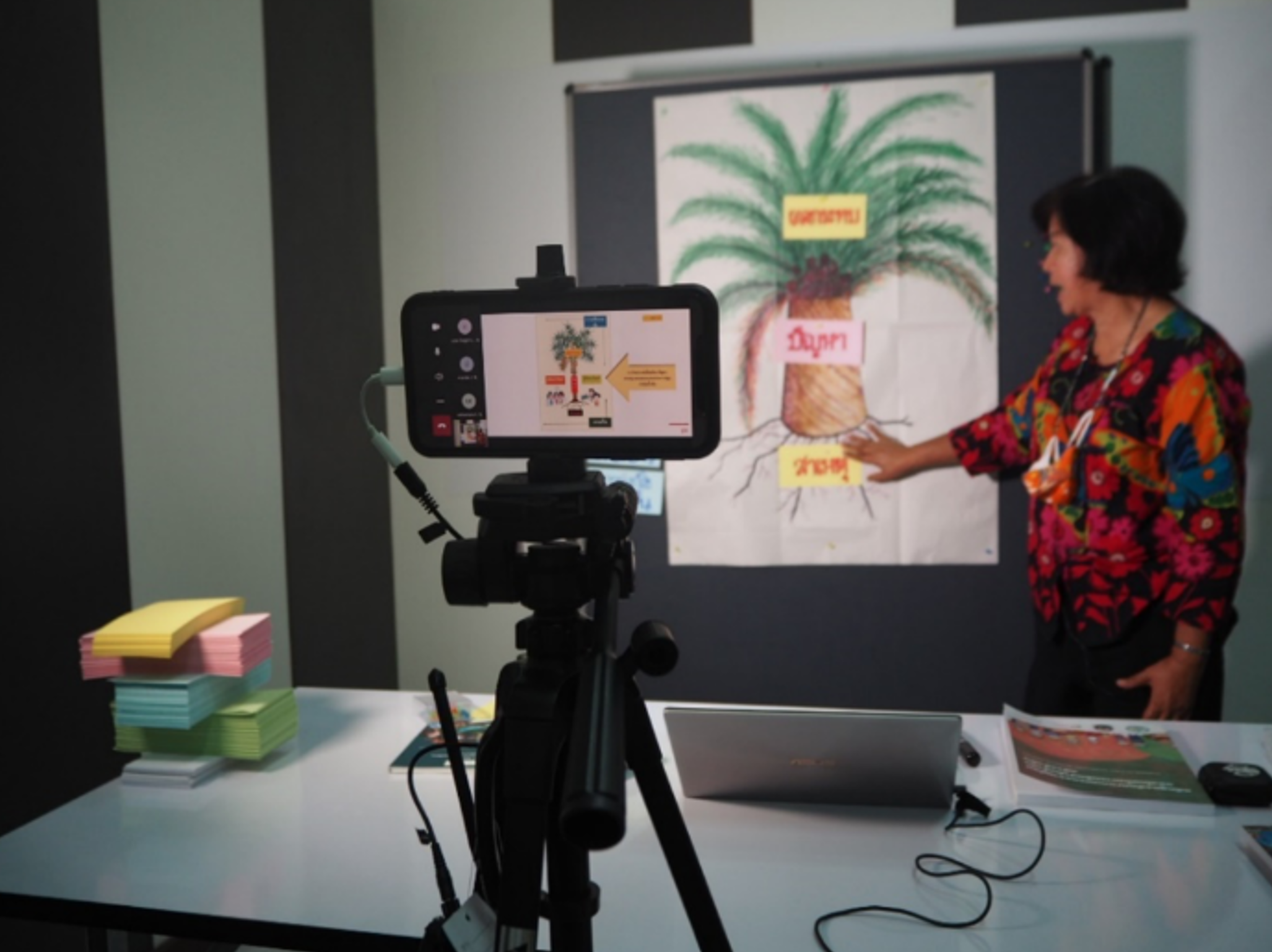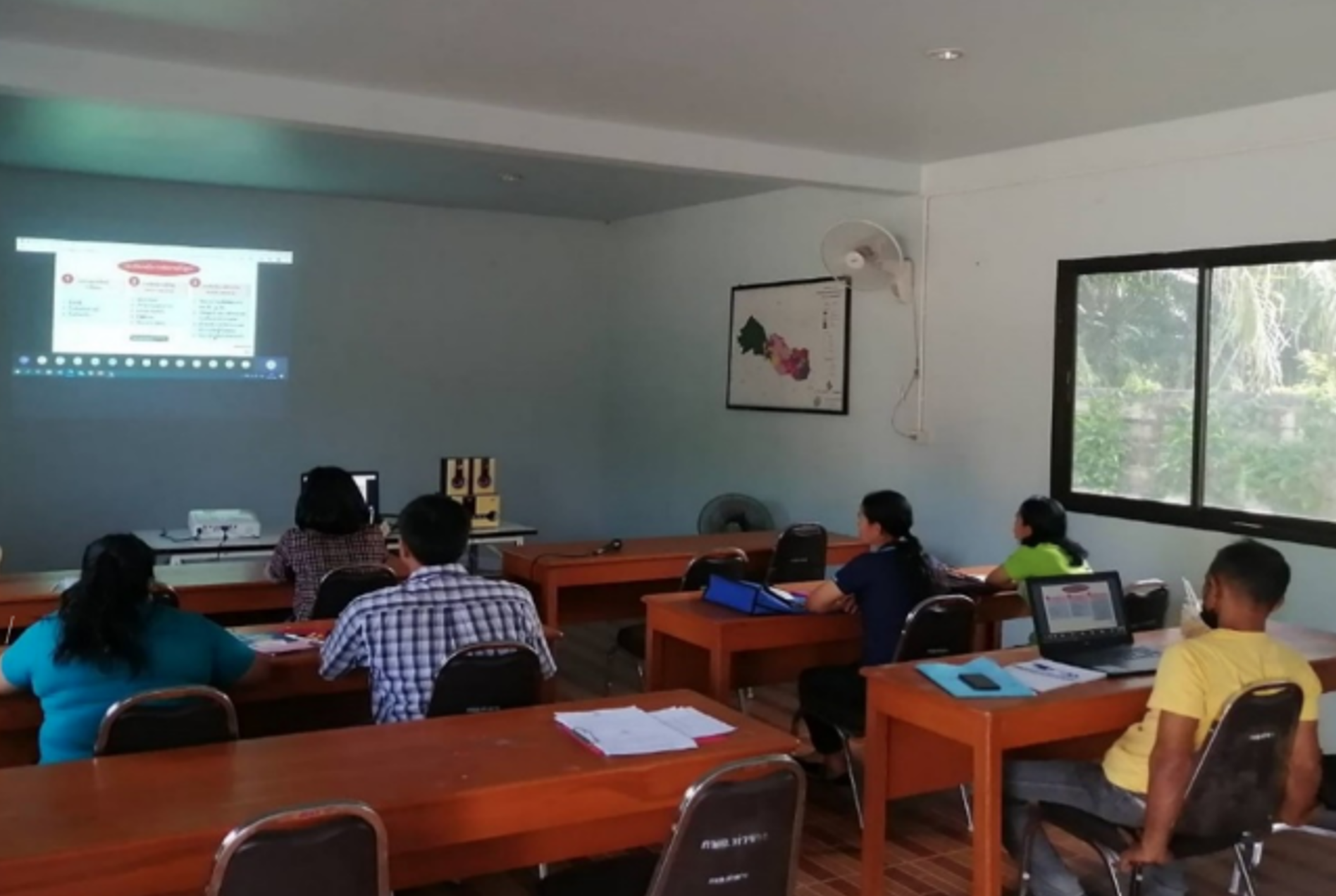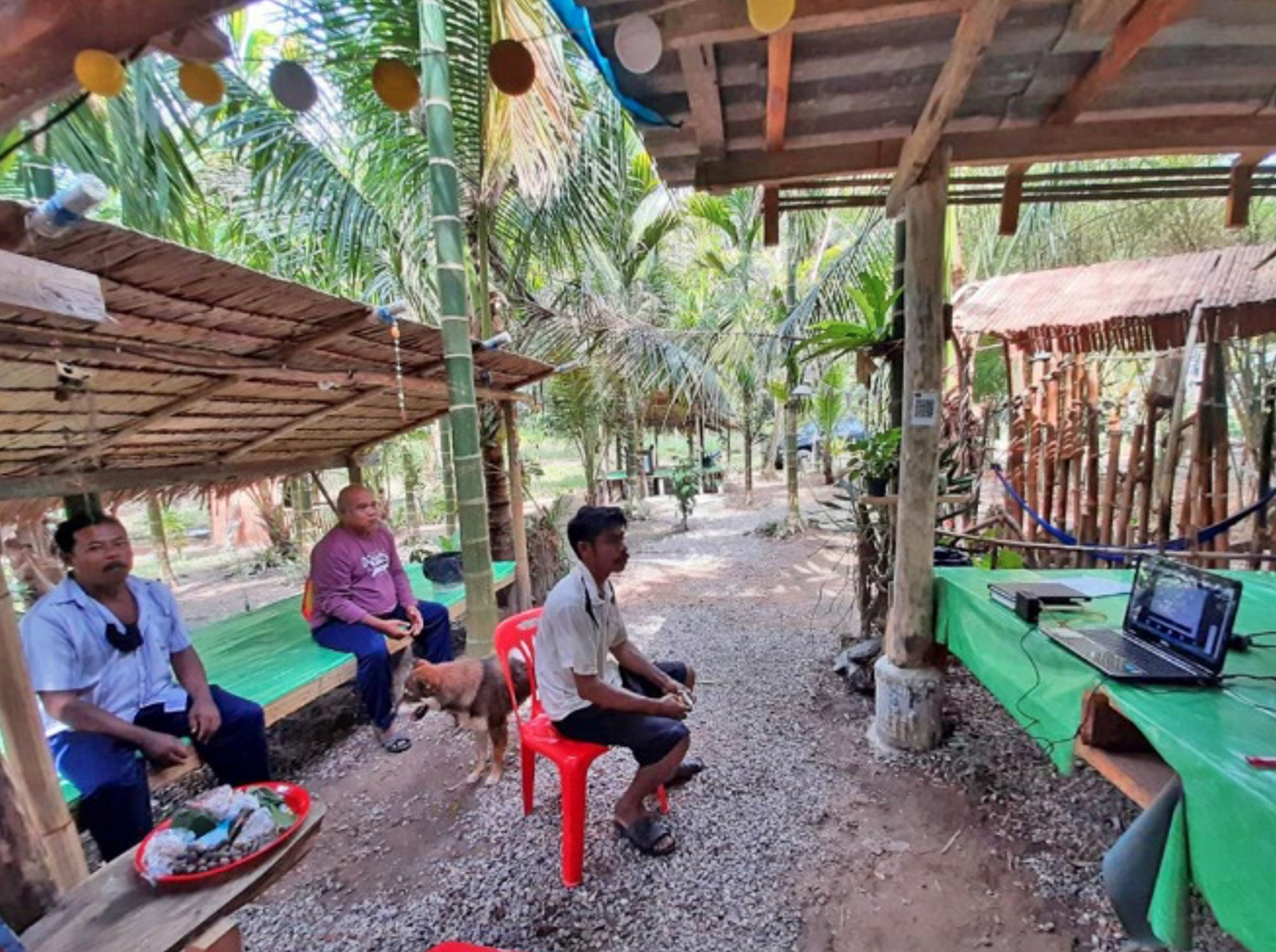Utilising online platform to enhance sustainable palm oil knowledge and capacity

Story and Photos: Jantima Kulkit, Agriculture and Food Cluster
The ongoing COVID-19 crisis has undoubtedly affected offline business and activities at all levels. Several planned training programmes have been postponed due to a strict measure of COVID-19 control and physical distancing.
Sustainable and Climate-Friendly Palm Oil Production and Procurement (SCPOPP) also adopts the online training as a platform for those interested trainers, including representative from palm oil mills, smallholders, extension officials from the Department of Agricultural Extension (DOAE) and experts from universities, to share their views and lessons learned on sustainable palm oil production.
With only few equipment such as computers, cameras, speakers, microphones and internet connection, up to 200 SCPOPP trainers based in Krabi, Suratthani and Chumphon provinces together with participants from other locations can access the online training on MS teams each time. This project helped theses trainers to prepare necessary equipment for accessing the online training, including computers or notebooks with cameras, speakers, microphones, and an internet connection.
Challenges do exist though. The training format and period originally designed for face-to-face and interactive meeting needs to be adjusted to meet suitability of the online training. The social and environmental impact of sustainable oil palm is the key topic for the online training. Samples and analysis tools for measuring social impact or legal assessment of oil palm plantations are available for trainers to use and put into practice.
Apart from social impact assessment training session, trainers are also encouraged to attend a one-day online course on environmental impact of sustainable oil palm on living organisms and ecosystems. So they can learn more in-depth about the values of conservation. Technical knowledge and skills learned will enable trainers and oil palm smallholders to effectively develop suitable management plan, monitoring and evaluation system while minimising the environmental, social and cultural impacts by implementing good techniques to their palm oil plantations.
Voices from participants
Living in the new normal time, Sukanya Srisubat, Purchasing Manager from S.P.O.AGRO-INDUSTRY CO LTD, Phrasaeng District, Suratthani province, was impressed by the straightforward and concise details, saying the online training session provided her valuable learning experience and reflect active cooperation and support from many relevant parties to people at the field implementation level.
“I have gained knowledge and learned important techniques which are useful implementation,” said Rabiabrat Manimai, Chairman from Khao Din smallholders group in Krabi province.
Saengjaroen Wisitpaiboon, Agricultural Extensionist practitioner Level, Kanchanadit District Agricultural Extension Office, Suratthani province, said online training is time and cost effective. “Online training gives us not only knowledge, but enable us to be a part of a solution to COVID-19 control and climate change.”
Key topics discussed during one-day TOPSA online training include:
- High Conservation Values
- Soil and Water Conservation andBank Erosion Prevention Measure
- Greenhouse Gas: Impact, the Principle of 9Rs
Contact Person
Apiradee Treerutkuarkul – Senior Communication Officer
Agriculture and Food Cluster



